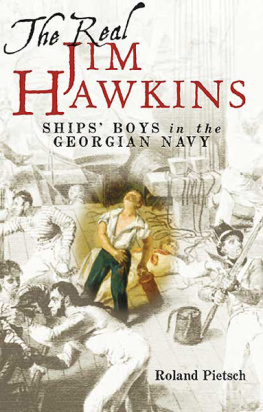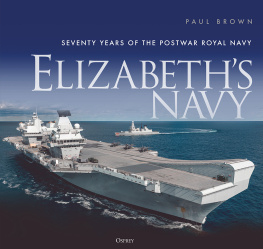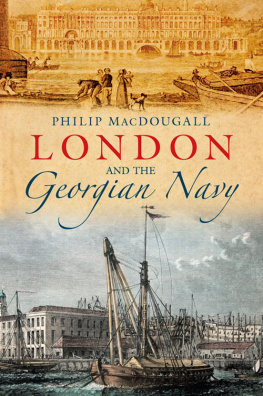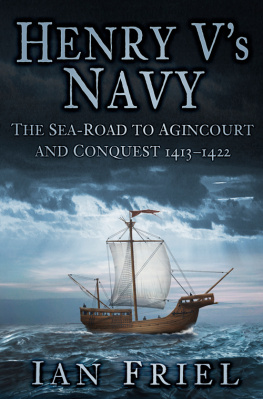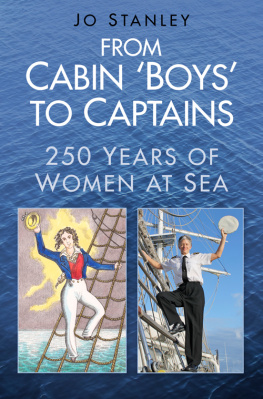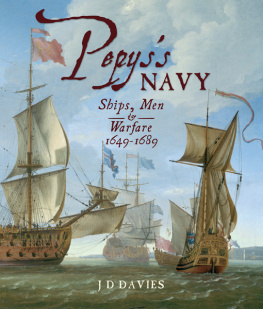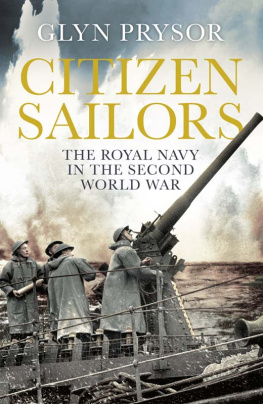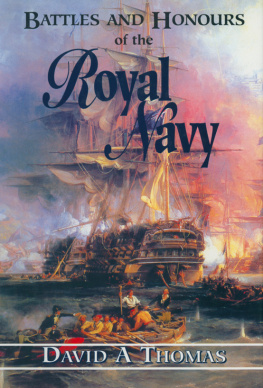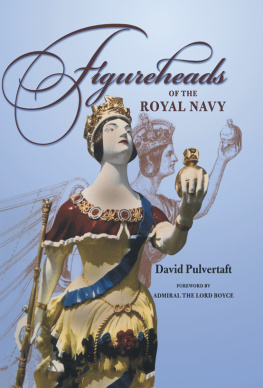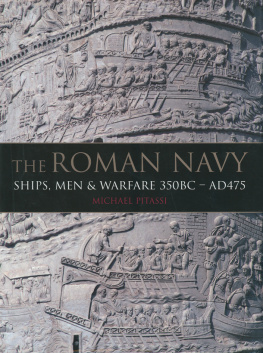Copyright Roland Pietsch 2010
First published in Great Britain in 2010 by
Seaforth Publishing,
Pen & Sword Books Ltd,
47 Church Street
Barnsley S70 2AS
www.seaforthpublishing.com
British Library Cataloguing in Publication Data
A catalogue record for this book is available from the British Library
ISBN: 978-1-84832-036-9
PDF ISBN: 978-1-78346-601-6
EPUB ISBN: 978-1-78383-067-1
PRC ISBN: 978-1-78346-834-8
All rights reserved. No part of this publication may be reproduced or transmitted in any form
or by any means, electronic or mechanical, including photocopying, recording,
or any information storage and retrieval system, without prior permission in writing
of both the copyright owner and the above publisher.
The right of Roland Pietsch to be identified as the author of this work has been asserted
by him in accordance with the Copyright, Designs and Patients Act 1988.
Designed and typeset by M.A.T.S., Leigh-on-Sea, Essex
Printed and bound by MPG Books Group, UK
Fr meine Eltern
Ingrid und Wolfgang
Contents
List of Illustrations
Acknowledgements
A S does every author, I have an endless list of people to thank. The colleagues who have read, supervised, commented on, or examined the various stages of this study were: Professor Sarah Palmer, who started me on the topic as a doctoral student, Professor David Wootton, my PhD supervisor, Professor Glyn Williams, who went through all my doctoral drafts, even when he complained that my English was increasingly suffering from my allegedly spending too much time with footballers, and Professor John Miller. Furthermore, there were Professor N A M Rodger, who had an answer to almost any naval history question I could think of, and Pat Crimmin, who was also a great support in my search for funding. Grace OByrne acted as a tireless publishing adviser over many years, and childrens author M E Lehmann proofread the entire manuscript in the shortest time. Dr Dianne Payne provided a challenging and productive exchange in using the Marine Societys boy registers and also allowed me to use her database. Professor Isaac Land was, and is, a unique inspiration when it comes to interpreting the sailors culture. Professor B R Burg encouraged the debate about homoeroticism on board, and Professor Donna Andrew read what I had to say on eighteenth-century charities in general and gave valuable feedback. Consultant psychiatrist Dr Nikola Kern of Bethlem Royal Hospital speculated with me about the possible mental injuries of the ships boys. Ian Hunter helped with the photography, took all the photos where my happy-schnapper attitude did not take enough account of aperture and composition, and also helped by exhibiting the parallels between a sailors life and that of a modern-day touring rock musician. Dr Alan Ross shared the trials of being a PhD student, and provided many inspiring exchanges on youth history as a field of study, while childrens author Paul Dowswell helped to reignite a juvenile fascination with maritime adventures. Barry Jones worked through many draft chapters of this book and never lost his enthusiasm. Professor Sir Roderick Floud gave helpful advice on transferring the Marine Society registers into a database, and Dr Peter Earle on archives for merchant seamen.
Furthermore, at the National Maritime Museum in Greenwich, I have to thank particularly Dr Margarette Lincoln and Dr Nigel Rigby, as well as Professor Roger Knight (formerly at the NMM), for their continuous support over many years. My doctoral research was funded by a Junior Caird Fellowship of the National Maritime Museum, and by a studentship from Queen Mary, University of London. At Queen Mary, I would like to thank the staff and students of the history department and of the International Foundation Programme. At the Marine Society, I would like to thank Samantha Shaw, Brian Thomas, Mark Jackson, Nick Blackmore and Jeremy Howard for their interest in my research, for allowing me to work under Jonas Hanways watchful portrait, and to reproduce paintings and illustrations. Gavin Wilson helped with identifying historic photos, and kindly allowed me to use photos from his collection. At Wall to Wall Television my thanks go to Debbie Townsend and everyone else, not least for advice on copyright issues, and at the 1805 Club to Dr Huw Lewis-Jones and Anthony Cross.
I am also indebted to the Royal Historical Society for funding me to present my research results at the Maritime History Beyond 2000 conference in Fremantle (Australia) in 2001. Earlier findings of my studies have been published in the Journal for Maritime Research (2000), the Genealogists Magazine (2001), The Northern Mariner (2004), Deutsche Schiffahrt (2005), The Seafarer (2001, 2006), The Oxford Encyclopedia of Maritime History (2007), and The Trafalgar Chronicle (2009). And they have been presented at, amongst others, the New Researchers in Maritime History conference (University of Hull, 1999), the National Maritime Museum (2001), the Neuere Forschungen zur Wirtschafts- und Sozialgeschichte (Georg-August-Universitt Gttingen, 2003), the British Maritime History Seminar (National Maritime Museum and Institute of Historical Research, 2009), and the Economic and Social History Seminar (University of Oxford, 2010) I am grateful to all the editors and conference organisers involved for giving me the opportunity to present my research.
Lastly, I would like to thank the helpful staff at the National Maritime Museum, the National Archives, the British Library, the London Guildhall Library, the Institute of Historical Research, the Tower Hamlets Local History Library and Archive, the UK Data Archive in Essex, National Museums Liverpool, the Berlin Staatsbibliothek, the National Portrait Gallery, Westminster Abbey Library, Disney Publishing Worldwide, Random House (for Dell), as well as the bar staff in The Hare, my local pub in Bethnal Green, and various other establishments in the East End of London that allowed me to quietly sit in the corner with my laptop and write, whilst some of their punters demonstrated how Jolly Jack Tar lives on in todays leisure culture. I should also thank one real-life ships boy, Joseph Conrad (1857-1924), for showing that it is possible to write books in English even if one has only become fluent in the English language as an adult. And perhaps I should also thank Robinson Crusoe, for inspiring me to believe that a son of German parents, and a dreadful sailor, can still leave his name in English maritime tradition.
As historians are human beings, too, the social support while writing a book is as important as the historical advice from colleagues. Hence I would like to thank my dear friends Rabeya Poppy Sultana, Andrew Robertson, Corrado Di Pisa, Adrian Lewis, Richard Burton, Emma Ringqvist, Ben OConnor, Tndi Reniers, Emma Mukerjee, Jamie Perera, Carolyn Deacon, Davina Brewster, Ane Rodriguez, Karin Dolk, Jorge Mugica, Rebecca Harrop and Basti Lynn Fox, Feli and Alice, Fab Dal Bello, Martin Wissenberg, Rosa and Nick, everyone from the Spitalfields Arts Project (The Spitz, 1996-2007) and TELquel (TU Berlin, 1992-1995), as well as Berit Emma Ott and Fridolin der Pirat, Michiel Dyer, Juan Pedraza and Josune, Jens Hobus, Grand Union Co-op, David Martinez, Ian Reid and everyone from Stocks Court (1997-2000), Carsten Bhme and family with Raphal le pirate, Marc Wiechmann and Katja, for providing the work soundtrack, mainly Smog, Hayden, Micah P Hinson, Little Sparta, Portishead and Fionn Regan, as well as my family Gerarda, Ingrid and Wolfgang Pietsch, Ingrid Schmidt, Karen and Tom Gerlach, and all the Kraatzs (Brbel for Schtzinsel record and book) and Wetzels. In memory of Peter Schmidt (1940-2004) and Siegfried Kraatz (1940-2005).
Next page
